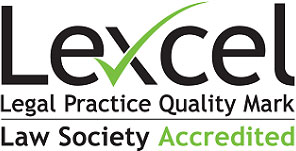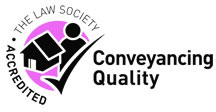If you are searching for a new home, you may have come across the term ‘cash buyers only.’ Rather than expecting you to turn up with a trunkful of money, the agent is looking for a speedy sale to someone who does not need to borrow money via a mortgage and is in a position to proceed.
Likewise, if you are selling a property, your estate agent may describe someone as a ‘cash buyer’ indicating that they are mortgage free.
Most people see being a cash buyer as a positive, but what does this term really mean, and how could a cash-only transaction benefit you?
‘There can be distinct advantages to being a cash buyer, or selling to one,’ agrees Nicola Bennell, Head of residential property with Richard Reed Solicitors. ‘Unfortunately, there are some common misconceptions about buying with cash, and it is important everyone is clear on what this means in the context of their particular transaction.’
What is a cash buyer?
A cash buyer is someone who can finance their purchase without a mortgage or selling their own home. Technically, to be a cash buyer, you must have enough money available to buy the property at the time you make the offer. For example, you may have already sold your former home and be renting in order to be able to act quickly in a fast-moving market.
Sometimes people use the term more loosely, for example, to describe someone who does not need a mortgage. However, that buyer may still need the sale proceeds from their own home, or another property, to proceed.
If you are selling your home, your estate agent should confirm how the proposed buyer will pay for it and so they will usually check the bank statements of a potential cash buyer. However estate agents vary in their approach, so ask yours how they will verify a buyer’s status. Making sure your buyers are as free to proceed as they claim can avoid a nasty surprise later.
If you are a cash buyer, having proof of your funds on hand will boost your credibility and help speed up the process.
What are the advantages of being a cash buyer?
Being a cash buyer is likely to make you more attractive to sellers. Typically, cash buyers can proceed more quickly because they do not have to wait for a mortgage or for their own sale to complete. There is also less risk of the sale falling through. There are no lender’s requirements to satisfy, nor is the sale dependent on linked transactions, where problems further up the chain can derail the entire process. If you are a cash buyer, then you may be able to leverage this to your advantage and negotiate a lower price or other benefits.
Cash buyers may also have a wider range of properties to choose from. Their ability to move quickly makes it easier for them to buy at auction. They can also buy properties considered unmortgageable, for example, ones of non-standard construction or which have structural or title problems.
However, such problems are also likely to affect the property’s value when you come to sell. Discuss the potential impact with your professional advisors. Some structural defects are remediable, albeit at a cost. So are many title issues, for example by extending the lease in the case of a short leasehold property. It is important to factor the time and cost into your plans; there are many pitfalls for the unwary.
Keeping you and your investment safe
All sellers and buyers, cash or otherwise, must provide proof of their identity and address to comply with anti-money laundering regulations. The exact requirements will depend upon your solicitor and whether you are meeting them face-to-face. However, it is a good idea to have ready your current passport or photocard driving licence and a recent council tax or utility bill. This will help speed things up, allowing your solicitor to get started straightaway.
As a purchaser you will also need to show the source of your funds, and if you are a cash buyer you may need to do this several times in the process. The seller’s estate agent will want to see evidence you are a cash buyer, and your solicitor will need to confirm your funds are from a legitimate source. This is to comply with legislation aimed at reducing criminal activity. The exact requirements may vary depending upon your risk profile and the protocol your solicitor adopts. So, it is a good idea to check with them early on and to have the necessary paperwork ready. For example, if you are funding your purchase from savings, they may ask to see bank statements showing regular salary payments into your account and your savings building up.
Fraud awareness
Occasionally, a cash only purchase is indicative of property fraud or money laundering. If you are selling to a cash buyer who does not have a solicitor, your solicitor may need to consider their source of funds. As well as complying with their legal duty, this helps protect you from complications which could arise if the buyer is not legitimate.
Due diligence
Being a cash buyer should allow you to proceed quickly and therefore to negotiate a better price for your purchase. However, be wary of any pressure to complete before you are ready. Be cautious about dispensing with any of the recommended searches or investigations into title. Your solicitor can advise you of the risks involved and, if necessary, ways of mitigating this, for example by taking out indemnity insurance.
If you are a seller, make sure your estate agent checks out the credentials of any cash buyer before formally accepting their offer. This is particularly important if you are tempted to sell to one of the so-called buy any property companies, which regularly advertise on the internet or in local media. While some are genuine, others are only middlemen for third party investors, and others may use dubious tactics such as making an initial high offer then reducing it before the sale goes through.
Finally, whether you are buying or selling, the progress of your transaction will be determined by its slowest part. If you are a cash buyer looking to move quickly, then you could still encounter problems if your seller needs to complete the purchase of their new home first.
In many ways, a cash only purchase will not be that different from any other. Whether buying with cash or relying on a mortgage, the motivation of the parties and their conveyancers will largely determine the speed and smoothness of your transaction.
How we can help
Our solicitors are experienced in all aspects of conveyancing and will give you their individual attention to help move your transaction forward whether it is a cash purchase or conventionally funded.
For further information on any aspect of the home buying process, please contact our residential property team on 0191 567 0465 or email: [email protected]









